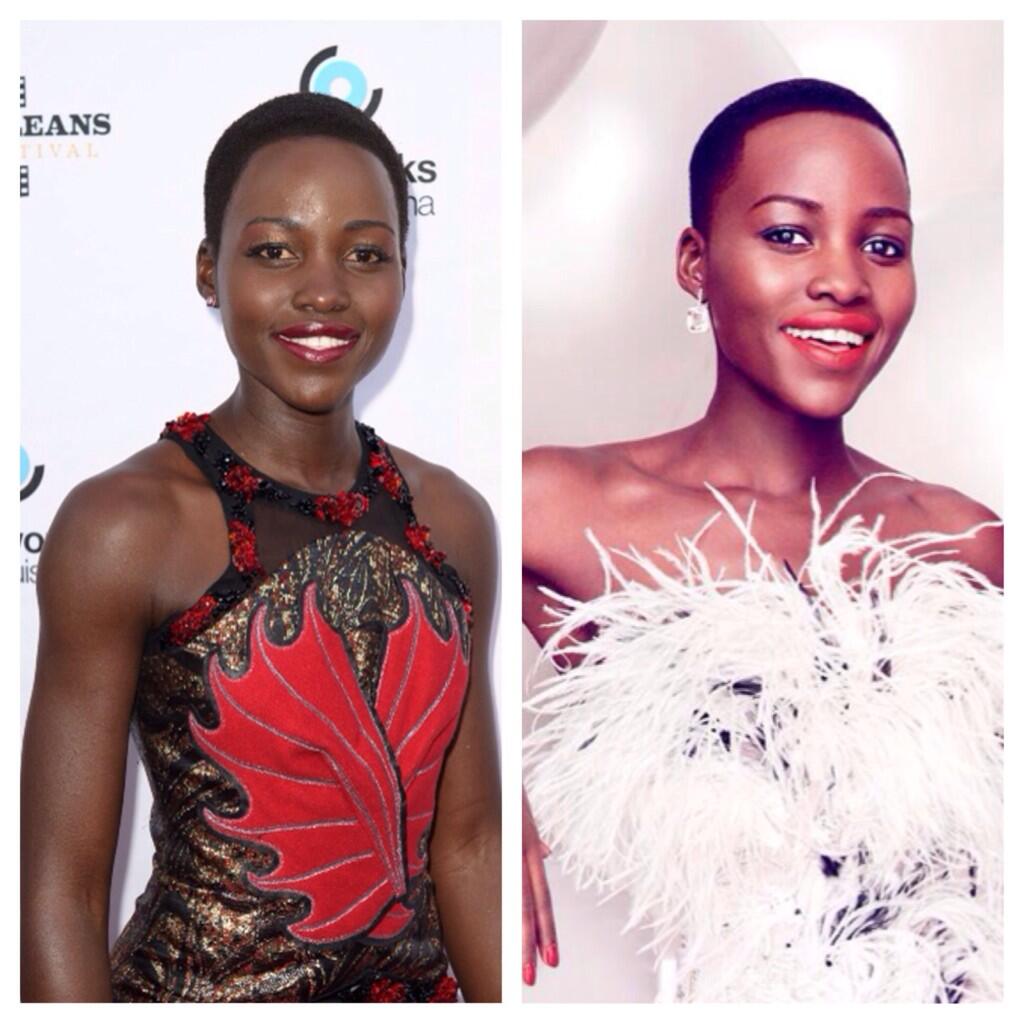 When I posted a picture on my Instagram of newly minted Academy Award winner Lupita Nyong’o giving her acceptance speech at Sunday night’s awards ceremony, I didn’t know or even suspect that there was any question about whether she was black. The photo was of a beaming Nyong’o holding up her award in triumph. Her speech—especially the part where she said, “No matter where you’re from, your dreams are valid”—moved me.
When I posted a picture on my Instagram of newly minted Academy Award winner Lupita Nyong’o giving her acceptance speech at Sunday night’s awards ceremony, I didn’t know or even suspect that there was any question about whether she was black. The photo was of a beaming Nyong’o holding up her award in triumph. Her speech—especially the part where she said, “No matter where you’re from, your dreams are valid”—moved me.
I, like many, had been rooting for her to win an Oscar as soon as the credits rolled on 12 Years a Slave. To me, Nyong’o’s win—and she said as much in her speech—was a win for black girls, black women and women of all colors everywhere.
I like the actress so much, I started referring to her as “Our Lady Lupita.” And I said so in thatInstagram caption, which read, “Black Girl Magic! Get you some. Congrats to Our Lady @lupitanyongo on her Oscar win!” Innocent enough, right?
Promptly, a follower responded, “Actually, she’s Mexican.” It was said as if Nyong’o couldn’t be black and Mexican at the same time. For anyone who is confused by this, I point you toward two documentaries, The Forgotten Roots and African Blood, which show that the Diaspora extends to Mexico, too.
But back to Nyong’o. Her father was a Kenyan professor who was teaching in Mexico when she was born. She also returned to the country when she was a teenager. Calling her Mexican isn’t technically inaccurate. But it’s not the whole story. She’s also Kenyan because both her parents are and because she was raised in Kenya.
And she’s black because—and I can’t believe I have to explain this—look at her. The deep-brown complexion, the wonderfully kinky hair and the full lips all fit the phenotype of the people colloquially called “black.” For me, that makes Nyong’o unquestionably a black woman, even if she hasn’t always felt that way.
“Having come to the United States was the first time that I really had to consider myself as being black and to learn what my race meant,” Nyong’o told Vogue. “Because race is such an important part of understanding American society.”
Not everyone defines “black” the same way. For some, it’s a race that extends across nationalities—i.e., the African Diaspora. For others it’s a way to describe the unique experience of African Americans. The people who fall into the “Lupita’s not black” camp are usually thinking of culture.
Then there are those who place nationality above everything else, which make them consider her Mexican-ness or Kenya-ness only. Nyong’o claims both, saying on the red carpet, “I am Mexican and Kenyan at the same time. I have seen that they are fighting over my nationality, but I insist I am Mexican Kenyan, and I am fascinated by tacos with roasted meat.”
But perhaps there’s something else at the root of this drive to define what Nyong’o really is. It seems that whenever a black woman is recognized for her beauty in America, there’s often a clamor to make her “other” or “exotic,” as if being “just” black isn’t good enough. There always has to be something more that explains why she’s considered a “great beauty.”
Read more: here

